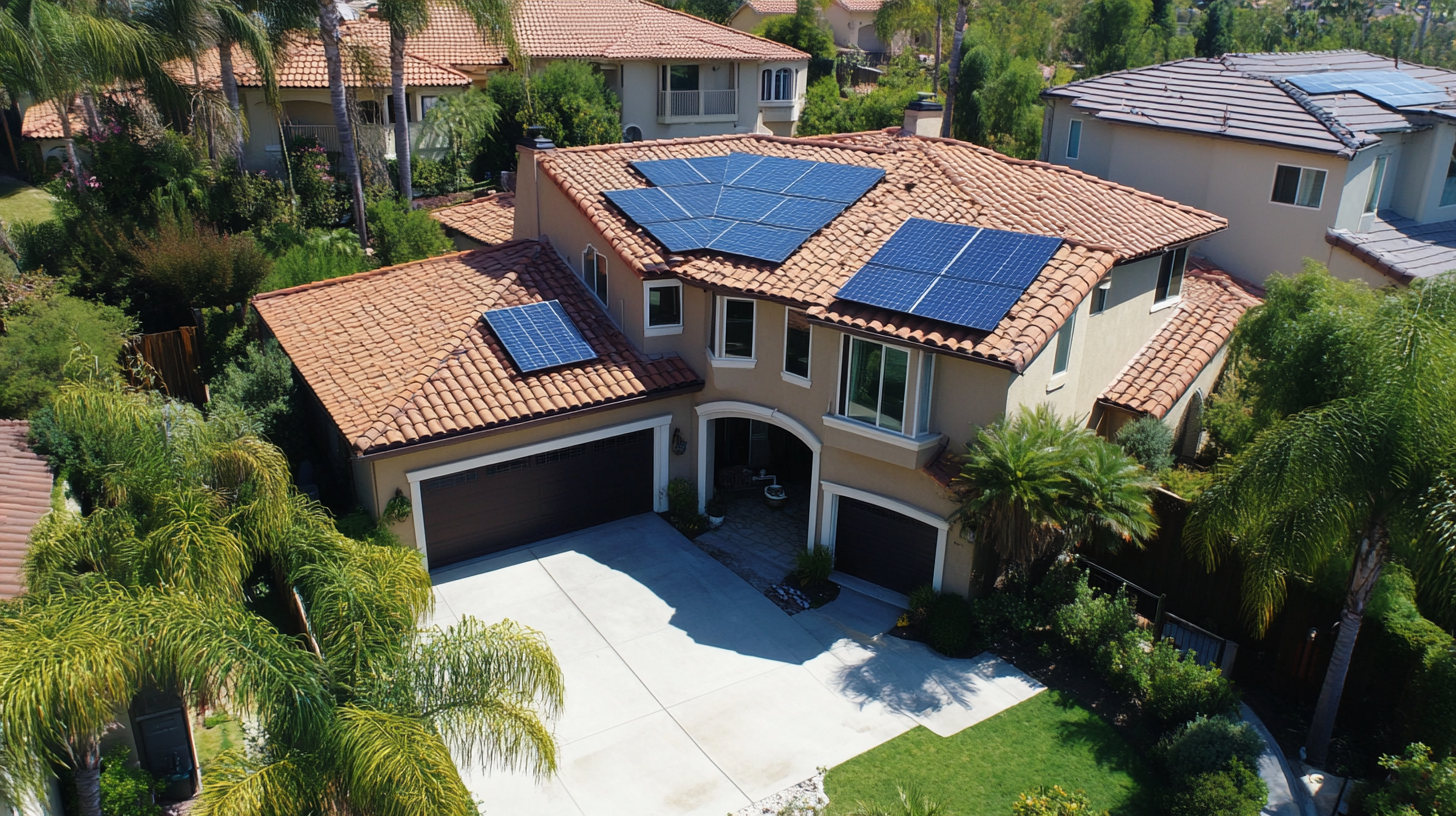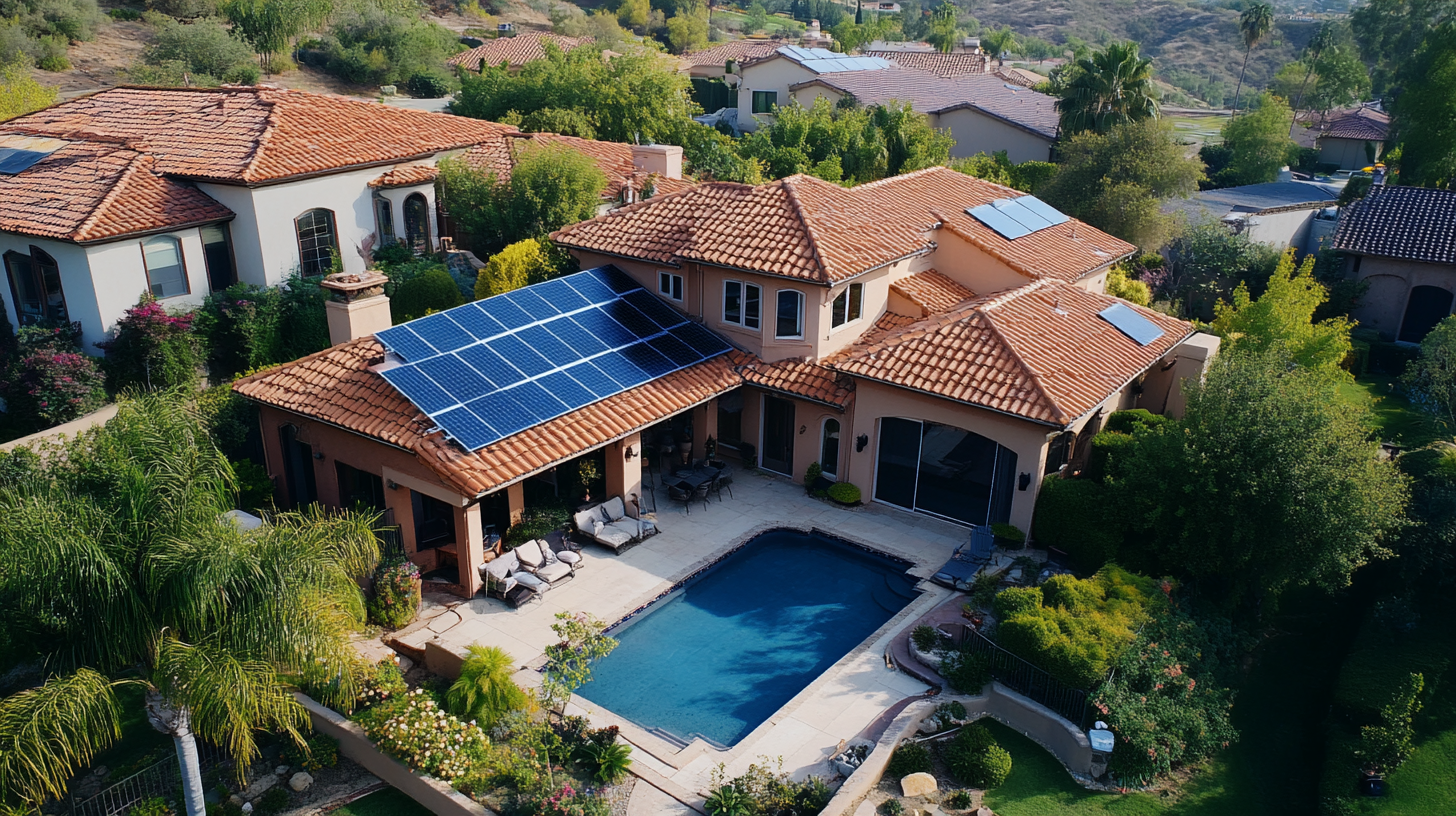Blog
- Home
- Blog
Unlocking Sustainable Energy Trade 7 Key Certifications for Residential Solar Systems
Solar Systems for residential use have become an important instrument in transitional energy matters as the global campaign on sustainability takes greater priority. Inspirationally, the Solar Energy Industries Association (SEIA) affirms that the residential solar market is a constantly growing segment whereby installations are being reported at above 20% yearly. This growth is not just a spur; it is a real thrust towards energy independence and carbon footprint reduction. The recent count has shown over 3 million residential solar installations in the United States only; therefore, demand for reliable, efficient, and certified solar technology has reached its peak ever.
With the availability of options galore in the market, it can be intimidating for a homeowner wanting to make a transition to solar energy to work through the maze of such certifications. NREL reports have emphasized the need for certification programs that ensure such systems meet certain performance and safety standards, strengthen consumer confidence, and assist in the greater good of introducing solar into the mainstream. This blog, therefore, will examine seven important certifications that address how residential solar systems are installed, maintained, operated, and used. These certifications affect their durability and compliance with laws and regulations. With the availability and knowledge of these certifications, the homeowner can make informed decisions, thereby ensuring a productive contribution to the sustainable energy trade.

Understanding the Importance of Certifications in Solar Energy
The certification process offers an ever-so-important mechanism governing the reliability and assurance of various residential solar systems, especially as solar energy undergoes a definitive transformation from being a novelty to becoming a household name. Awareness regarding the importance of these certifications is vital to enhancing safety and performance as the consumer takes to solar technology. Certifications issued by different organizations attest to the credibility of solar products and installations, giving consumers assurance while simultaneously generating trust in the market. The Underwriters Laboratories (UL) certification should weigh most heavily when considering its importance, as this means that the solar panels have been tested in terms of safety and performance standards. The National Renewable Energy Laboratory (NREL) also participates in the independent testing of solar technologies, which builds credibility for solar products. The Solar Rating and Certification Corporation (SRCC) certification in solar thermal matters is vital to confirm the operational capabilities of a system. These certifications will look after the consumers while simultaneously keeping manufacturers on their toes to produce the best in the world for a more reliable industry. The second important element is that the certification allows other incentives and rebates. Oftentimes these incentives are tied to state and local governments that require certified systems to be eligible for various financial incentives, thus making it crucial for homeowners to know certified products. In supporting solar installations that are certified, these consumers are ensuring a brighter future for energy resources alongside an array of cost benefits. Now, as the demand for clean energy continues to rise, certification will serve as the parameter through which this solar world will become comprehensible for the masses.

Key Certifications for Ensuring Quality and Safety in Solar Installations
When you talk of solar systems for homes, guarantees for quality and safety come first. It is here that the different certifications help instill confidence in customers and installers alike. In fact, the Solar Energy Industries Association (SEIA) states that the U.S. solar market was growing at a rate of 167% between the years of 2016 and 2021. The validity and appropriateness of the certifications become increasingly important now that the industry is expanding. Certification-wise, there are many of them, but seven of them are especially crucial.
One is the UL 1703 certification. It provides a basis for safety in solar panel products that have undergone testing for fire, electric, and mechanical performance and are certified as safe. In fact, this is one of the most important certifications that deals with failure modes which could potentially create unsafe situations, therefore assuring the homeowner that they are investing in good systems. Another important certification is where the International Electrotechnical Commission developed IEC 61215, which makes long-term performance and durability assessments of solar modules under certain conditions. The marks of both certifications give a concrete assurance of quality to the end-user.
Lastly, guaranteeing that electrical installations follow safety standards as per the National Electrical Code requirements. According to a study from NREL, having systems compliant with these codes helps not only safety but also optimization of energy production efficiency. Lastly, keep an eye out for similar qualifications from the North American Board of Certified Energy Practitioners (NABCEP), which ensures that installers are acting in adherence to industry best practices. With these certifications, homeowners can feel confident about embracing solar technologies, knowing that their systems have met rigorous standards for safety and quality.

Navigating the Certification Process for Residential Solar Systems
Navigating the certification process for solar residential systems is vital for homeowners who want to go green with energy. Keeping up with all the certifications of ever-increasing adoption of solar technology will mean compliance with ever-more-stringent industry standards and increased system efficiency. According to the Solar Energy Industries Association (SEIA), the U.S. solar market expanded over 167% in the last five years on the last count, indicating rising curiosity about access to dependable solar solutions. Growth shows the importance of certification in building consumer trust in solar products.
Several imperatives for residential solar certification are underscored. This includes Underwriters Laboratories' (UL) certification attesting to the safety and performance of solar panels. Besides that, the International Electrotechnical Commission (IEC) provides international standards for the trading of solar components across borders, making sure these products meet recognized benchmarks of safety and efficiency. According to a report from National Renewable Energy Laboratory (NREL), systems having certifications recognized nationally tend to harness optimum energy output and give them two peace of mind.
The criteria for using the certification process tend to be stringent such that some of the requirements may require testing experiments or following a given set of rules, and this could alleviate the associated risks that come with solar installations. For instance, the Nonprofit Solar Scorecard examines solar installers or installers based on a specific set of criteria such as licensing and insurance and maintains transparency in selection. Such detailed attention to certification would thus not just incubate the industry but also put the consumer in an informed position on the matter to help further propagate the cause of renewable energy solutions in residential applications.

Evaluating the Impact of Certifications on Energy Efficiency and Sustainability
The ongoing rise in energy demand catalyzed mainly by advancements in artificial intelligence and big data technologies makes it necessary to question how the certifications of residential solar systems can benefit energy efficiency and sustainability. Implemented in energy systems, AI revealed an imperative need for infrastructures to undergo upgrades, such as power grid modernization and optimization of data centers, in order to meet the peak energy demand that these applications will eventually pose to the environment over the years.
While the role of certifications in developing sustainability practices in the residential solar sector is significant, buildings were found to signify about a third of the total energy consumption globally, hence the urgency in establishing certified energy management systems. For example, a recent energy management certification audit for Asia Pulp & Paper's Shangdong branch addresses this critical shift towards standardization in sustainability. Likewise, a McKinsey report shows that the introduction of certified frameworks can save up to 30% of energy use in residences, thus proving its desired investment to reach ambitious sustainability targets.
Such an example is indeed Houston, which actively engages the community through various initiatives aimed to reduce the energy consumption level by 20% by 2020 within the city as a whole. Aena's climate action plan to reach net zero by 2040 on all Brazilian airports emphasizes reducing certification standards for energy practices. Emerging leaders in technology and sustainability will, thus, have to deal with a certification mechanism that will indeed drive energy efficiency and net-zero targets.
Future Trends in Solar Certifications and Their Importance for Homeowners
However, even as the demand for residential solar systems has grown tremendously over the past year, it has also brought the importance of certification in conservation sustainability and safety into sharp focus. It is very current for homeowners to keep abreast of the latest such solar certifications' trends to come up with good choices about placing solar panels in their home. Certification does not mean compliance with safety and environmental standards alone; it also signifies long-term efficiency and reliability of solar products. Recent reports indicate that many companies achieve significant certifications, which tend to boost consumer trust and increase their reputations in terms of quality within the solar industry.
Solar awards seem to have a promising future because innovation in technology always brings a new line of stringent standards. Take for example the development of advanced fire safety ratings which would be given to solar components-as this shows action toward protecting homeowners and their investment. The new certifications of a kind that will emphasize recycled materials and sustainable practices will encourage environment-conscious consumers. These emerging certifications will be associated with the industry's impetus toward a more sustainable future so that it will be extremely important for homeowners to be aware of which of these will directly affect their energy needs.
In this sense, learning about the newest certifications and their meanings now would afford homeowners the ability to make choices on solar systems that are actually of the highest caliber not only energy-efficient but also green. With certifications as yardsticks of quality and sustainability, homeowners could enjoy their investments more knowing that they are in line with the larger trend of renewable energy usage.